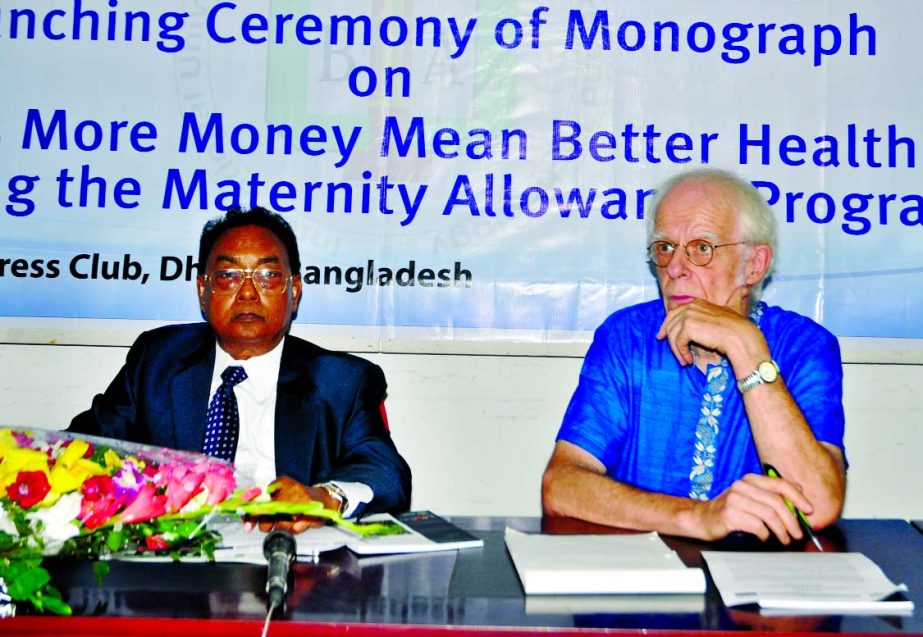
Business Desk :
The launching ceremony of the 11th Monograph of the Center for Policy Research (CPR) of International University of Business Agriculture and Technology (IUBAT) on Does More Money Mean Better Health? Assessing the Maternal Allowance Program was held at VIP Lounge of National Press Club on Sunday.
The monograph was introduced by the author Qayam Jetha, Visiting Fellow to CPR, IUBAT and Prof Dr John Richards, Prof of Public Policy at Simon Fraser University, Canada and Member of the International Advisory Council of IUBAT. Prof Dr M Alimullah Miyan, Founder Vice-Chancellor of IUBAT presided over the ceremony.
While introducing the monograph, the speakers stated that the Bangladesh Government introduced the Maternity Allowance Program (MAP) on a national basis in 2007. This program provides a Tk.350 monthly stipend for 24 months to low-income rural women expecting their first or second child. Selection is made by Union Parishads based on several criteria. The program has several goals: reduce poor pregnancy outcomes, increase breastfeeding and knowledge about family planning, enhance maternal nutritional status, and increase the use of maternity-related services. Currently, each year over 100,000 mothers throughout rural Bangladesh become MAP beneficiaries.
Mr Qayam Jetha has evaluated the MAP in realising its goals, based on a survey of 700 mothers in three Upazilas in the Lakshmipur district, whose babies were born between August 2011 and March 2012. The survey compared outcomes among 350 mothers who were MAP beneficiaries and 350 mothers, who were eligible but who did not become beneficiaries. The basic evaluation question to answer is, to what extent did the MAP beneficiary mothers experience better health outcomes than the mothers who did not receive the MAP.
The IUBAT Centre for Policy Research thanked Development Organization of the Rural Poor (DORP) for facilitating the survey.
However, the author undertook the study independently, and he is responsible for results. The results from a survey of MAP conducted elsewhere in Bangladesh may differ from those discovered in Lakshmipur.

